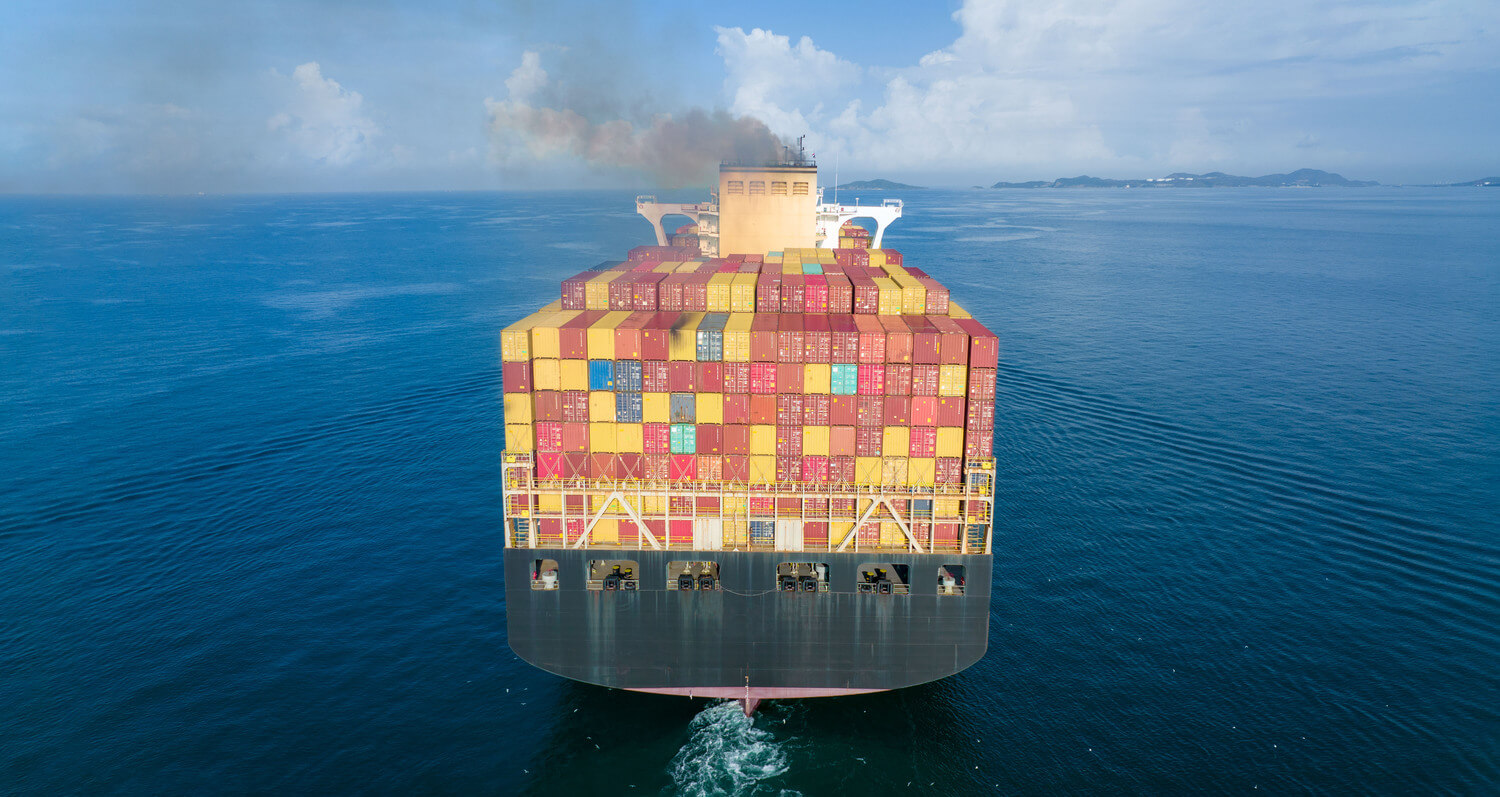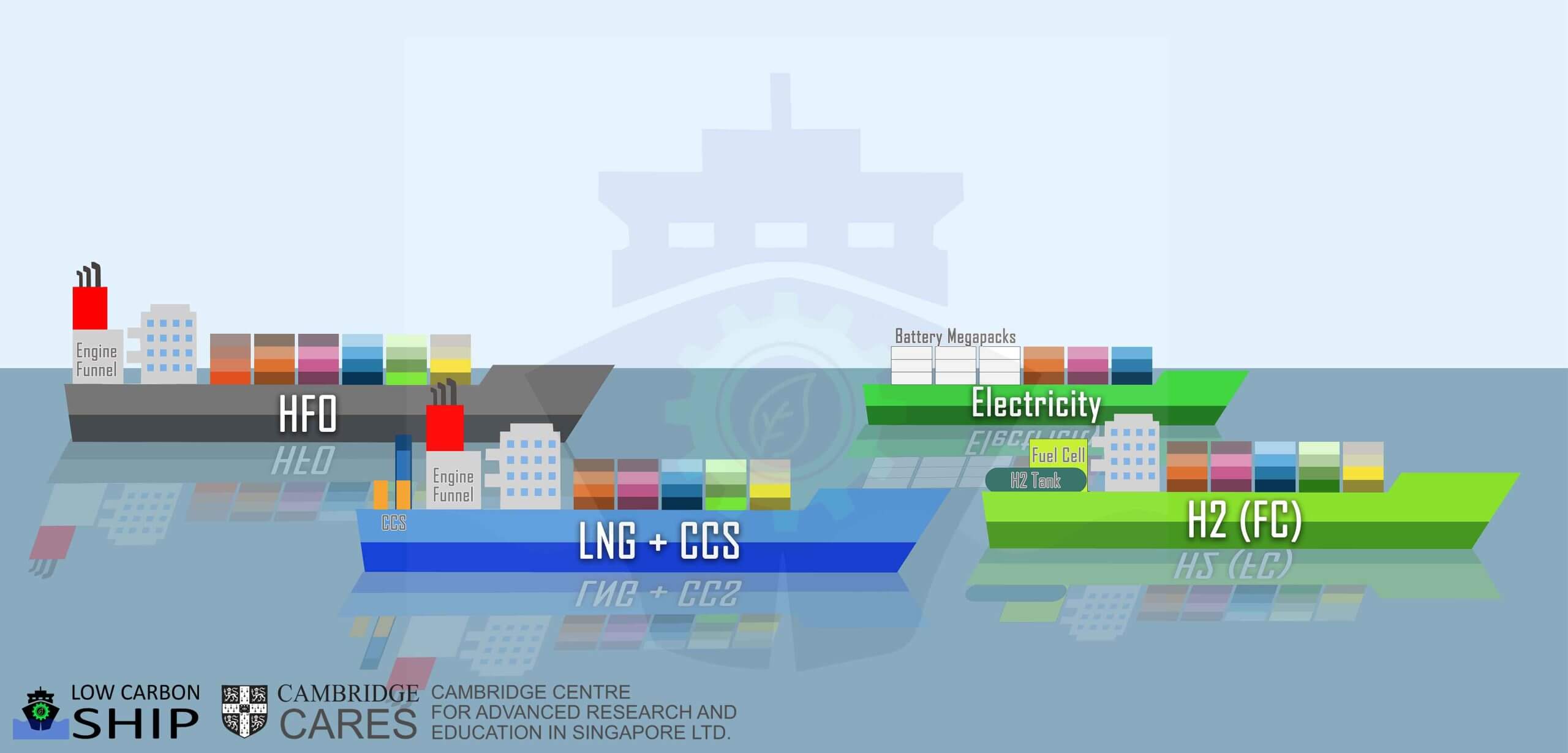Home » About Us
ABOUT
LOW CARBON
SHIP

The Low Carbon Ship project, funded by the National Research Foundation (NRF), Singapore and hosted by Cambridge Centre for Advanced Research and Education in Singapore (CARES) performs research on shipping decarbonisation. Our aim is to be as objective and quantitative as possible so that informed decisions can be made to help maritime stakeholders (regulators, shipowners, builders, etc.) better understand the various possibilities to meet the International Maritime Organization’s (IMO) 2050 decarbonisation goal via adoptions of alternative low- and zero-carbon fuel.
As there is no singular solution, our standpoint is to quantify the parameters which could be the determinants of marine fuel suitability and let the numbers highlight the potential of each alternative pathway towards shipping decarbonisation. Our interactive ship design calculators will allow users to toggle various ship design parameters to visualise and compare the performance of different ships when powered by different alternative fuels.
Lifecycle analysis
The lifecycle assessment of marine fuels gives a better interpretation of fuel potential in carbon reduction. Hence, simulation of fuel processing and energy conversion is carried out using ASPEN HYSYS modelling. The ASPEN model and the results obtained have been presented in an open-access article titled “A Comparison of Alternative Fuels for Shipping in Terms of Lifecycle Energy and Cost“.
The data being included are the Well-to-Tank (WTT) and Tank-to-Wake (TTW) energy, cost, and carbon emission factors of various alternative fuels. This data provides important insights into the economy and the potential of various alternative fuels e.g., hydrogen, ammonia, biodiesel, and electricity to replace conventional marine fuels like Marine Gas Oil (MGO) and Heavy Fuel Oil (HFO).
Ship design and characteristics
Given that each alternative has different volume and mass requirements relative to the current HFO ship, future low-carbon ships will have different cargo capacities and therefore specific emission indices. An interactive ship design calculator is developed for estimation of the percentage of cargo space loss, specific energy, specific cost, and percentage of carbon reduction based on inputs of ship characteristic. The performance of user-defined low- or zero-carbon ships can be compared with conventional HFO-fuelled ship with the aid of this calculator.
We would like this calculator to be used by shipowners as they plan their future fleets. The underlying research has been published in an article titled “Estimates of the Decarbonization Potential of Alternative Fuels for Shipping as a Function of Vessel Type, Cargo, and Voyage”.
Ammonia and hydrogen
System-level studies of future ammonia and hydrogen ships have been performed by our research team; which included the various subsystems needed for ammonia fuel storage and preparation, exhaust gas clean-up for an ammonia-powered ship, and also the large boil-off rates from a future liquid hydrogen carrier.
About us
Please contact Dr. Li Chin Law ([email protected]) or Prof Epaminondas Mastorakos ([email protected]) for further information.

This research is supported by the National Research Foundation, Prime Minister’s Office, Singapore
under its Campus for Research Excellence and Technological Enterprise (CREATE) programme.

